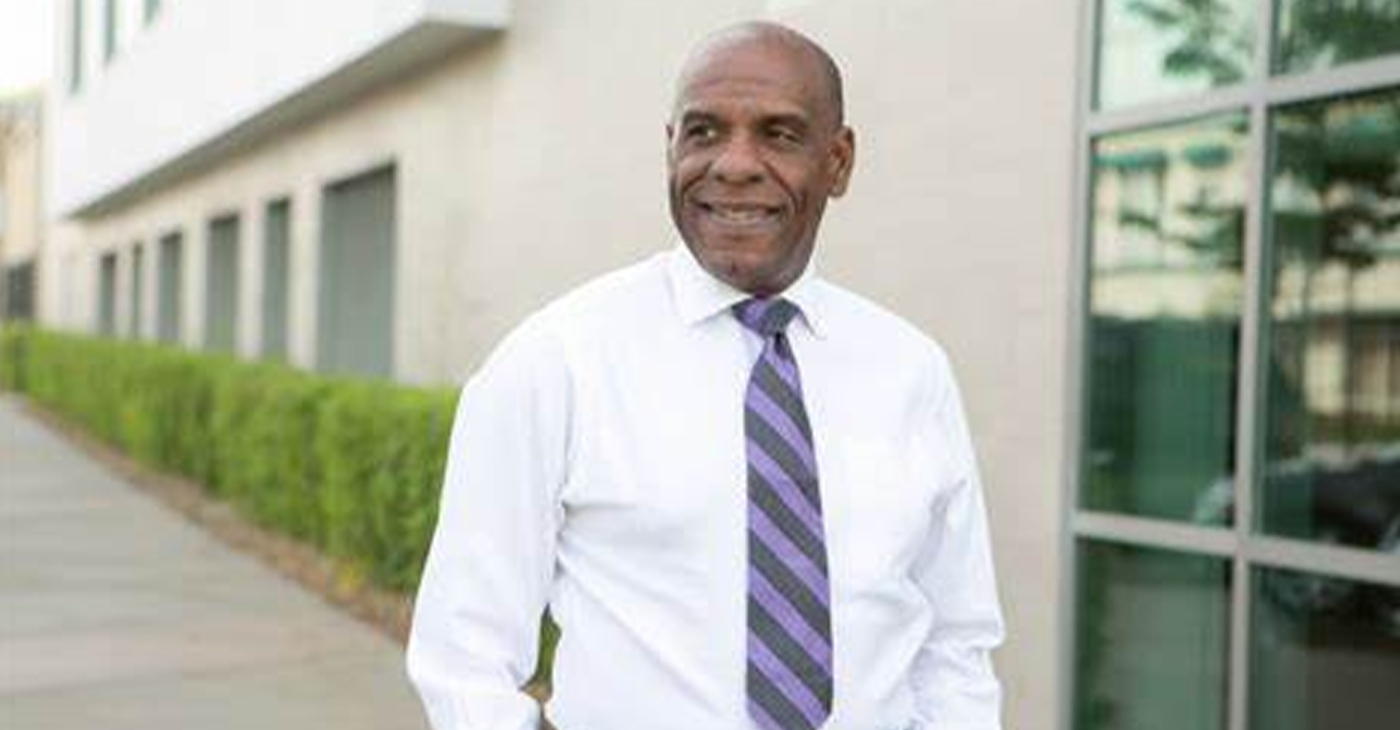Politics
AP EXPLAINS: Obama’s Presidential Veto Power

In this Jan. 13. 2015 file photo, House Speaker John Boehner of Ohio listens at left as President Barack Obama speaks to media as he meets with bipartisan, bicameral leadership of Congress to discuss a wide range of issues, in the Cabinet Room of the White House in Washington. President Barack Obama has vetoed just two measures in his six years in the White House, the fewest by any U.S. president since the 1880s. (AP Photo/Carolyn Kaster, File)
STEVEN R. HURST, Associated Press
WASHINGTON (AP) — President Barack Obama has vetoed just two measures in his six years in the White House, the fewest by any U.S. president since the 1880s. But since the Republicans have assumed control of both houses of Congress this month for the first time in his presidency, Obama has threatened to veto five more. Here’s a brief explanation of the president’s constitutional power to veto legislation and how Congress can respond:
THE ISSUES:
Legislation facing a White House veto if it successfully passes through Congress would:
—Force construction of the Keystone XL pipeline, which would carry Canada’s tar sands oil across the United States to refineries along the Gulf of Mexico.
—Change the definition of fulltime work from 30 hours to 40 hours per week under Obama’s federal health care program, meaning employers would be obligated to extend health care coverage to fewer employers.
—Roll back regulations on financial institutions put in place after the near-collapse of the U.S. economy in 2008.
—Roll back Obama’s executive action giving temporary relief from deportation to about 4 million immigrants in the country illegally, along with permits allowing them to work legally in the U.S.
—Blunt federal agencies’ ability to set regulations.
THE PRESIDENTIAL VETO:
The U.S. Constitution empowers the president to block legislation from becoming a law by refusing to sign it. The president has 10 days either to sign the bill into law or to send it back with an explanation of his veto. Congress may override a veto by bringing the measure to a new vote that passes with a two-thirds super-majority in both houses. Fewer than 5 percent of presidential vetoes have been overridden by Congress. Often the mere threat of a veto in advance of passage by Congress is enough to force a rewriting of the bill.
THE DOG NAMED VETO:
The first president, George Washington, exercised the first veto — of a measure that would have increased the number of seats for northern states in the House of Representatives. President Andrew Jackson later popularized them, most famously in 1832 as part of a series of moves to shut down the Bank of the United States. President James Garfield named his dog Veto, an unsubtle warning to Congress that was never carried out: He was assassinated in 1881 after serving just 200 days, and remains the last president never to issue a veto.
Copyright 2015 The Associated Press. All rights reserved. This material may not be published, broadcast, rewritten or redistributed.
Activism
Oakland Post: Week of April 17 – 23, 2024
The printed Weekly Edition of the Oakland Post: Week of April 17 – 23, 2024

To enlarge your view of this issue, use the slider, magnifying glass icon or full page icon in the lower right corner of the browser window. ![]()
Barbara Lee
Congresswoman Barbara Lee Issues Statement on Deaths of Humanitarian Aid Volunteers in Gaza
On April 2, a day after an Israeli airstrike erroneously killed seven employees of World Central Kitchen (WCK), a humanitarian organization delivering aid in the Gaza Strip, a statement was release by Rep. Barbara Lee (D-CA-12). “This is a devastating and avoidable tragedy. My prayers go to the families and loved ones of the selfless members of the World Central Kitchen team whose lives were lost,” said Lee.

By California Black Media
On April 2, a day after an Israeli airstrike erroneously killed seven employees of World Central Kitchen (WCK), a humanitarian organization delivering aid in the Gaza Strip, a statement was release by Rep. Barbara Lee (D-CA-12).
“This is a devastating and avoidable tragedy. My prayers go to the families and loved ones of the selfless members of the World Central Kitchen team whose lives were lost,” said Lee.
The same day, it was confirmed by the organization that the humanitarian aid volunteers were killed in a strike carried out by Israel Defense Forces (IDF). Prior to the incident, members of the team had been travelling in two armored vehicles marked with the WCF logo and they had been coordinating their movements with the IDF. The group had successfully delivered 10 tons of humanitarian food in a deconflicted zone when its convoy was struck.
“This is not only an attack against WCK. This is an attack on humanitarian organizations showing up in the direst situations where food is being used as a weapon of war. This is unforgivable,” said Erin Gore, chief executive officer of World Central Kitchen.
The seven victims included a U.S. citizen as well as others from Australia, Poland, the United Kingdom, Canada, and Palestine.
Lee has been a vocal advocate for a ceasefire in Gaza and has supported actions by President Joe Biden to airdrop humanitarian aid in the area.
“Far too many civilians have lost their lives as a result of Benjamin Netanyahu’s reprehensible military offensive. The U.S. must join with our allies and demand an immediate, permanent ceasefire – it’s long overdue,” Lee said.
Community
Financial Assistance Bill for Descendants of Enslaved Persons to Help Them Purchase, Own, or Maintain a Home
California Legislative Black Caucus (CLBC) vice chair Sen. Steven Bradford (D-Inglewood) introduced new legislation related to reparations to the Senate Committee on Housing on April 2 in Sacramento. Senate Bill (SB) 1007, “establishes the Homeowner’s Assistance for Descendants of Enslaved Persons Program to make financial aid or assistance available to descendants for the purposes of purchasing, owning, or maintaining a home,” the legislation states.

California Legislative Black Caucus (CLBC) vice chair Sen. Steven Bradford (D-Inglewood) introduced new legislation related to reparations to the Senate Committee on Housing on April 2 in Sacramento.
Senate Bill (SB) 1007, “establishes the Homeowner’s Assistance for Descendants of Enslaved Persons Program to make financial aid or assistance available to descendants for the purposes of purchasing, owning, or maintaining a home,” the legislation states.
The Senate Housing Committee advanced the bill with an 8-1 vote. It will be re-referred to the Appropriations Committee for consideration.
Sen. Kelly Seyarto (R-Murrieta) was the only member who voted against the bill.
“SB 1007 is about starting a long process of paying back a debt that is not only owed, but that was also promised, and is 160 years overdue, to African Americans,” Bradford told the committee chaired by Sen. Nancy Skinner (D-Berkeley). “It is the first step in closing the wealth and equity gap created by centuries of slavery and racial discrimination policies.”
The bill aligns with one of the 115 recommendations listed in a two-year study conducted by the California reparations task force, of which Bradford was one of nine members.
Bradford said the report reveals that, in the state of California, a typical Black-owned home is 22% less valuable than a White-owned home.
Various advocacy groups from around the state attended the hearing held at the State Capitol Annex Swing Space. The California Housing Partnership, Bay Area Regional Health and Inequities Initiative, Coalition for A Just and Equitable California, Disability Rights of California, the American Civil Liberties Union of California, and California Community Builders all voiced their support of the bill.
-

 Activism4 weeks ago
Activism4 weeks agoOakland Post: Week of March 20 – 26, 2024
-

 #NNPA BlackPress3 weeks ago
#NNPA BlackPress3 weeks agoCOMMENTARY: D.C. Crime Bill Fails to Address Root Causes of Violence and Incarceration
-

 #NNPA BlackPress4 weeks ago
#NNPA BlackPress4 weeks agoFrom Raids to Revelations: The Dark Turn in Sean ‘Diddy’ Combs’ Saga
-

 #NNPA BlackPress3 weeks ago
#NNPA BlackPress3 weeks agoMayor, City Council President React to May 31 Closing of Birmingham-Southern College
-

 #NNPA BlackPress4 weeks ago
#NNPA BlackPress4 weeks agoCOMMENTARY: Lady Day and The Lights!
-

 Activism3 weeks ago
Activism3 weeks agoOakland Post: Week of March 27 – April 2, 2024
-

 #NNPA BlackPress4 weeks ago
#NNPA BlackPress4 weeks agoBaltimore Key Bridge Catastrophe: A City’s Heartbreak and a Nation’s Alarm
-

 #NNPA BlackPress4 weeks ago
#NNPA BlackPress4 weeks agoBaltimore’s Key Bridge Struck by Ship, Collapses into Water




















































